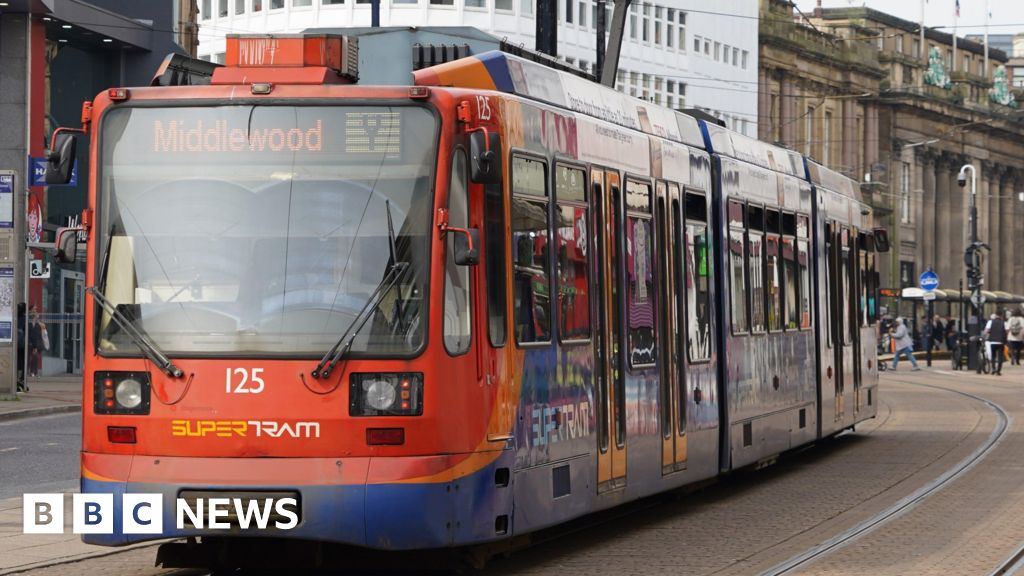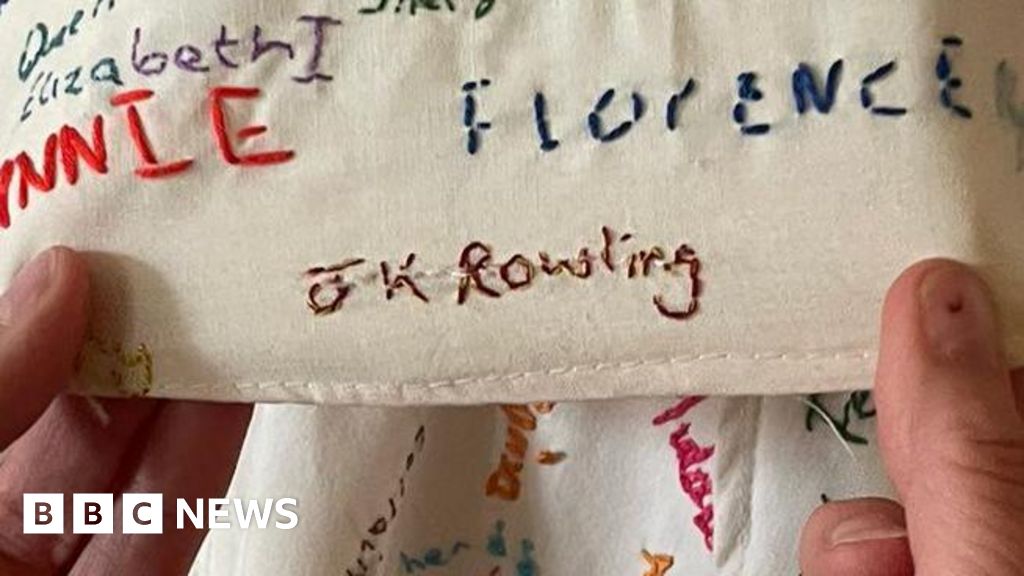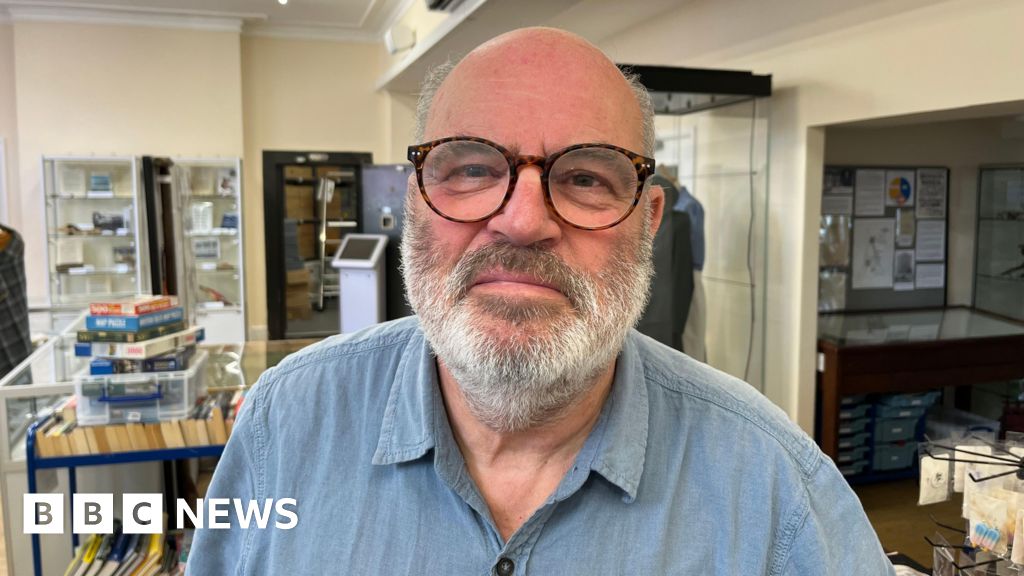- Careers
7 costly or financial trends to leave behind — and 5 worth taking into the new year
时间:2010-12-5 17:23:32 作者:Data 来源:Education 查看: 评论:0内容摘要:"Boy, it really is me who did this. I'm probably one of the photographers who's created the most work in the history of photography.""Boy, it really is me who did this. I'm probably one of the photographers who's created the most work in the history of photography."
He said: "It does worry me - we can be attacked and we are being attacked all the time."Mr Stuart and other bank bosses have been speaking to the Commons Treasury Committee which has been taking evidence on a range of issues affecting the industry, including how vulnerable it is to outages and cyber-attacks.

In March, it emerged- the equivalent of 33 days - of tech outages in the past two years.In recent weeks, retailers Co-op and Marks & Spencer have experienced severe disruption after being targeted by hackers.

Lisa Forte, of the cyber-security company Red Goat, told BBC News that Mr Stuart had made "an incredibly important point"."Cyber-attacks are increasing in both number and severity," she said.

"Criminals are monetising attacks more efficiently, and we are at a point now where it very much is when not if businesses will experience an attack."
Mr Stuart said his banking group was spending hundreds of millions of pounds improving its IT systems.with 175 tests available each week, the average waiting time is the first week when 18 or more appointments are still available to book.
The coming Atlantic hurricane season is expected to be busier than usual, US science agency NOAA has warned, just as cuts to American research are raising fears about the ability to track and prepare for these often deadly storms.Between six and 10 hurricanes are forecast for the Atlantic between June and November, compared with the typical seven.
Warmer sea temperatures – made more likely by climate change - and generally favourable atmospheric conditions, are behind the forecast.Several scientists have told the BBC that widespread firings by President Donald Trump's administration of government researchers could endanger efforts to monitor hurricanes and predict where they might hit.
- 最近更新
- 2025-07-07 06:27:09Crypto coin for Russian shadow payments moves $9bn
- 2025-07-07 06:27:09Uber brings forward trialling driverless taxis in UK
- 2025-07-07 06:27:09guide Dual-Eligible Medicare & Medicaid Coverage
- 2025-07-07 06:27:09Newsom says Trump 'deranged' as more troops deployed to LA protests
- 2025-07-07 06:27:09The best barefoot shoes for running
- 2025-07-07 06:27:09ReutersNew data show most US patients now stay on Wegovy, Zepbound after a year
- 2025-07-07 06:27:09At the scene in Ahmedabad: 'Everyone is running trying to save as many lives as possible'
- 2025-07-07 06:27:09USA TODAYStorm tracker: Andrea weakens in Atlantic, system in Pacific could become tropical storm
- 热门排行
- 2025-07-07 06:27:09translate to lower insurance premiums
- 2025-07-07 06:27:09Gardens £10m revamp inspired by Southport victims
- 2025-07-07 06:27:09I Made Matthew McConaughey's Hot Pants Margarita, and Now I'm Ready for Summer
- 2025-07-07 06:27:09Zohran Mamdani stuns Democratic establishment in New York mayor race
- 2025-07-07 06:27:09survey by the Employee Benefit Research Institute
- 2025-07-07 06:27:09Deadly Heat Wave Scorches Midwest, Northeast With Record-Smashing Temps
- 2025-07-07 06:27:09Large Room Air Purifier$45$100Save $55with coupon
- 2025-07-07 06:27:09Spending Review 'renewing Britain' and 'reckless splurge'
- 友情链接
- History Illustrated: The Kerch Bridge is ‘doomed’ What is Iran’s IRGC and who has Israel killed? Los Angeles protests updates: Trump administration defends military action One in 67 people worldwide remains forcibly displaced: UNHCR report One in 67 people worldwide remains forcibly displaced: UNHCR report Layoff notices delivered to hundreds of Voice of America employees US Senate passes stablecoin bill in milestone victory for crypto sector US Fed leaves interest rates unchanged amid economic uncertainty Spain rejects NATO’s 5% defence spending hike as ‘counterproductive’ The water of Hajj: A simple illustrated guide to Zamzam Mapping Iran’s oil and gas sites and those attacked by Israel Athlete, Pilates instructor, teacher: Human toll of Israel’s attack on Iran How do ballistic missiles work and what’s their range? British parliament votes in favour of assisted dying law US Fed leaves interest rates unchanged amid economic uncertainty British parliament votes in favour of assisted dying law Israel-Iran conflict: List of key events, June 19, 2025 Egypt, Libya stop activists gathering for March to Gaza, organisers say EU squeezes Russia financially to reach ‘peace through strength’ in Ukraine ‘The shelter was full’: Israelis confront unprecedented missile barrages ‘Not for you’: Israeli shelters exclude Palestinians as bombs rain down Digital solidarity: How Iran’s Gen Z is dealing with war online Mapping Israel’s expanding air attacks across Syria Fashion brands accused of shortcuts on climate pledges overlooking workers How do ballistic missiles work and what’s their range? Elon Musk’s X sues New York to block social media hate speech law Photos: The deadliest day at Gaza’s food distribution centres US Fed leaves interest rates unchanged amid economic uncertainty The US sponsored Iran’s 1953 regime change: Is Trump planning a repeat? Photos: The deadliest day at Gaza’s food distribution centres
